
Hradčany: The Crown Jewel of Prague
Hradčany, the Castle District of Prague, is a charming and historic neighborhood that offers visitors a glimpse into the rich tapestry of Czech history and culture. This picturesque area is perched on a hill overlooking the Vltava River, providing stunning views of the city below. At the heart of Hradčany is the iconic Prague Castle, one of the largest and oldest castles in the world. The castle complex is home to a variety of architectural styles, from Gothic to Baroque, and includes the magnificent St. Vitus Cathedral, the Old Royal Palace, and the charming Golden Lane with its tiny, colorful houses. As you stroll through the cobblestone streets of Hradčany, you will encounter a plethora of historic landmarks, quaint cafes, and artisan shops. The neighborhood is also home to several beautiful gardens, such as the Royal Garden and the Southern Gardens, which offer a peaceful retreat from the bustling city. Don't miss the chance to visit the Loreto, a stunning Baroque pilgrimage site, and the Strahov Monastery, which houses a remarkable library with ancient manuscripts and breathtaking frescoes. In addition to its historical and cultural attractions, Hradčany boasts a vibrant local atmosphere. The neighborhood is dotted with traditional Czech restaurants where you can savor hearty dishes like goulash and trdelník. Art lovers will appreciate the various galleries showcasing contemporary Czech art, while history buffs can delve deeper into the past at the many museums and exhibitions. Whether you're exploring the grandeur of the castle or simply soaking in the ambiance of this enchanting district, Hradčany promises an unforgettable experience.
Local tips in Hradcany
- Wear comfortable shoes; the cobblestone streets and steep hills can be challenging.
- Visit early in the morning or late in the afternoon to avoid the crowds at Prague Castle.
- Take a guided tour to fully appreciate the historical significance of the landmarks.
- Check the schedule for the changing of the guard ceremony at Prague Castle.
- Stop by a local café for a traditional Czech pastry and coffee break.
Iconic landmarks you can’t miss
Prague Castle
Explore the grandeur of Prague Castle, a historic marvel that showcases the rich culture and stunning architecture of the Czech Republic.

The Golden Lane
Explore The Golden Lane at Prague Castle - a historic street brimming with colorful houses, artisanal shops, and rich cultural heritage.
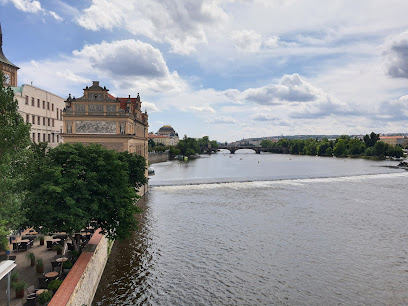
Hradcany Square
Discover the enchanting Hradčany Square in Prague, where history, culture, and stunning architecture come together in a vibrant atmosphere.
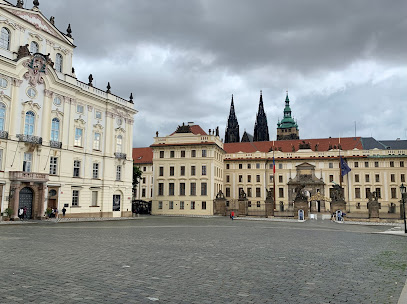
Old Royal Palace
Discover the Old Royal Palace, a historical landmark in Prague, where regal history and stunning architecture meet in the heart of the city.
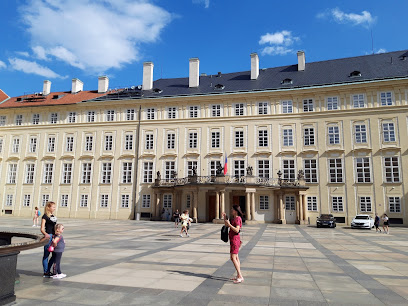
Gardens below Prague Castle
Explore the serene and historical Gardens below Prague Castle, a blend of beauty and cultural heritage in the heart of the city.
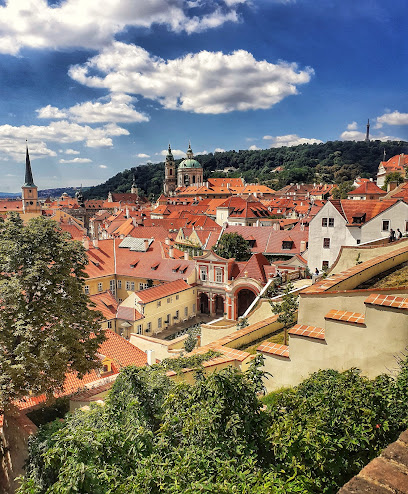
Prague Castle Riding School
Discover the majestic Prague Castle Riding School, a heritage gem showcasing equestrian elegance and rich cultural history in the heart of Prague.
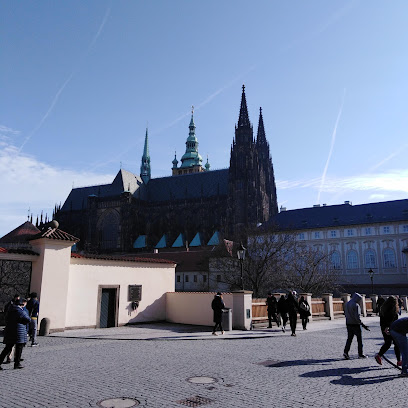
Old Castle Stairs
Experience the enchanting Old Castle Stairs in Prague, a stunning historic attraction offering breathtaking views and rich architectural beauty.
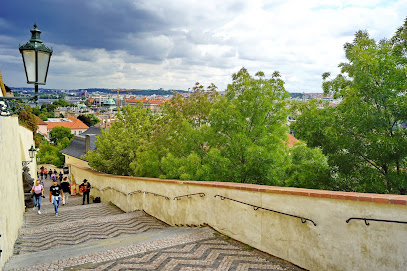
Obelisk at Prague Castle
Discover the Obelisk at Prague Castle, a stunning historical monument that offers breathtaking views and rich architectural history in the heart of Prague.
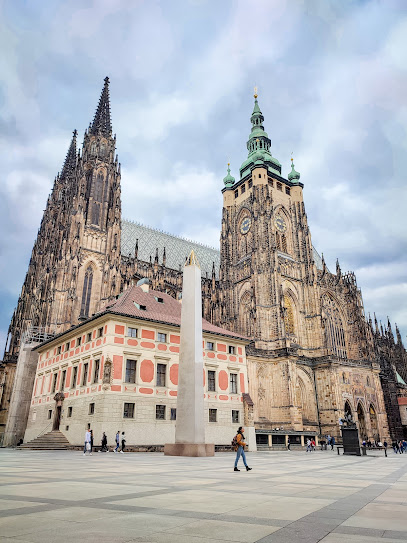
Ball Room of Prague Castle
Explore the majestic Ball Room of Prague Castle, a historical gem showcasing exquisite Renaissance architecture and rich Czech heritage.
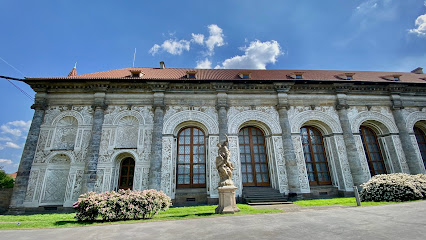
The Famous Log
Explore The Famous Log in Hradčany, a captivating historical landmark embodying Prague's rich heritage and stunning architecture.
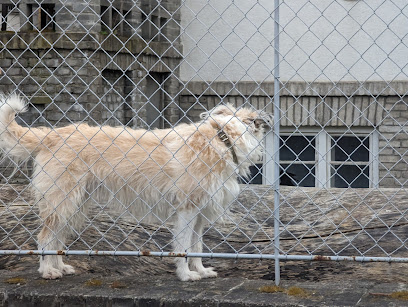
Unmissable attractions to see
The Golden Lane
Explore Prague's enchanting Golden Lane: a historic street within Prague Castle, featuring tiny houses and captivating stories.
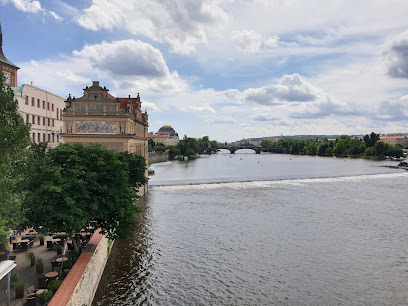
Hradcany Square
A historic Prague square offering stunning architecture, cultural landmarks, and the best views of Prague Castle.
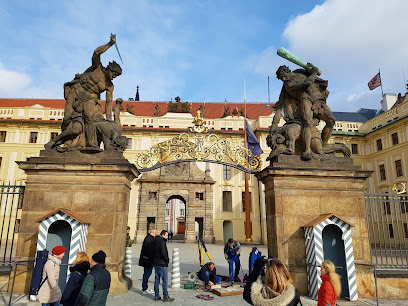
The Royal Garden
Discover tranquility in Prague Castle's Royal Garden, a Renaissance masterpiece with historical architecture, exotic flora, and enchanting fountains.
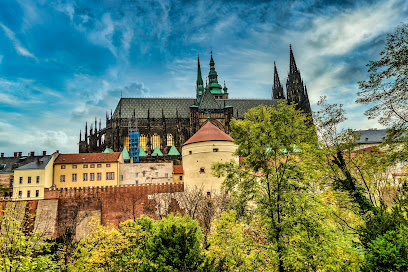
Gardens below Prague Castle
Discover Prague's hidden oasis: Five stunning Baroque gardens beneath Prague Castle offering tranquility and breathtaking city views.
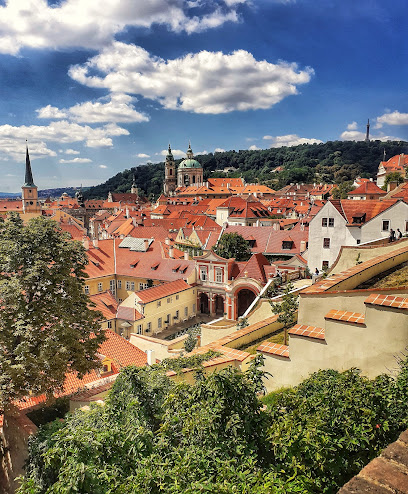
Dripstone Wall
Discover the Dripstone Wall in Prague's Waldstein Garden: a bizarre, man-made grotto shrouded in mystery and brimming with hidden details.
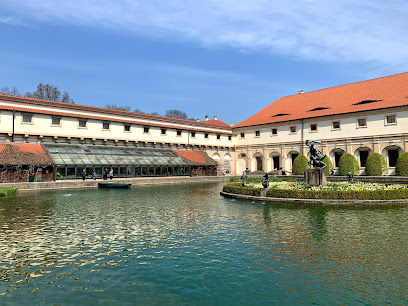
Ball Room of Prague Castle
Discover the Ball Room of Prague Castle: a Renaissance gem with centuries of history, art, and royal splendor in the heart of Prague.
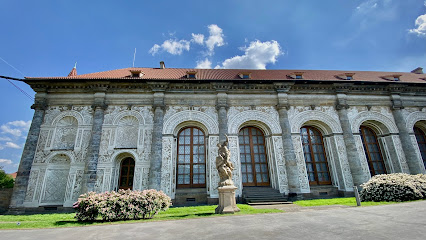
Promenáda Raoula Wallenberga
A scenic Prague promenade honoring Raoul Wallenberg, offering history and stunning views of Prague Castle and the Vltava River.
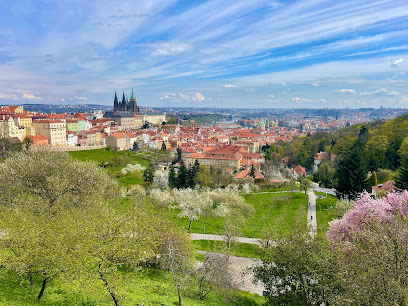
Essential places to dine
U Glaubiců
Experience authentic Czech cuisine at U Glaubiců in the heart of Malá Strana – where tradition meets taste.
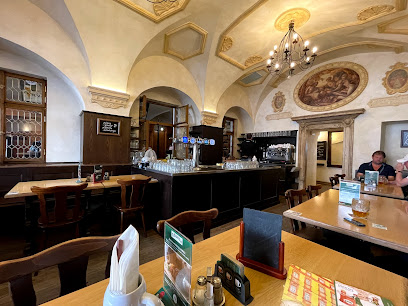
Kuchyň
Discover culinary artistry at Kuchyň in Prague - where traditional flavors meet modern dining in a breathtaking setting.
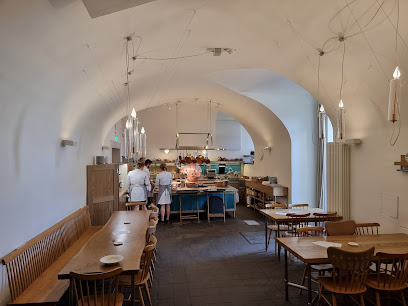
Restaurace U Mlynáře
Discover authentic Czech cuisine in Malá Strana at Restaurace U Mlynáře—where tradition meets flavor in an inviting setting.
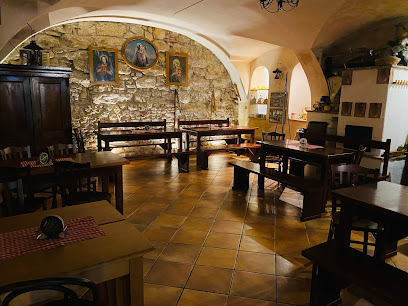
Na Hradcanske Restaurant
Experience authentic Czech cuisine with a modern twist at Na Hradcanske Restaurant in Prague's charming Letná district.
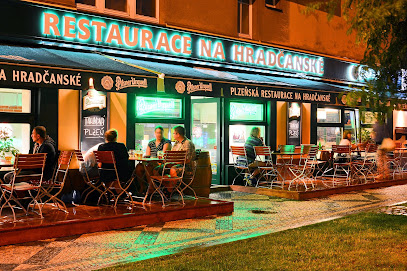
St.Martin
Experience authentic Czech cuisine at St. Martin in Malá Strana – where tradition meets modern culinary artistry.
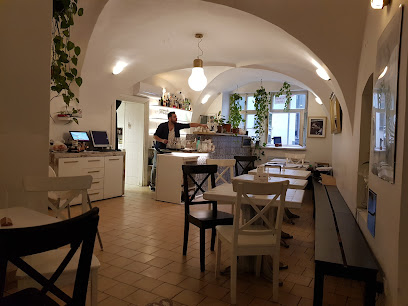
Restaurace U Labutí
Experience authentic Czech cuisine at Restaurace U Labutí, where tradition meets taste in the heart of Prague.
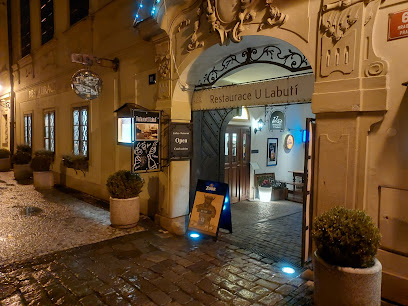
Restaurace a vinárna U Laury
Discover authentic Czech cuisine and exquisite wines at Restaurace a vinárna U Laury in the heart of Malá Strana.
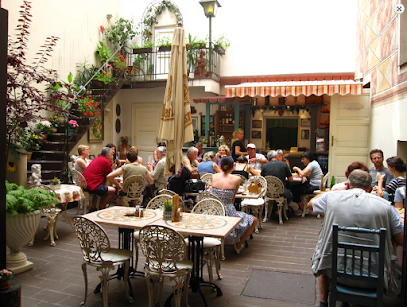
Restaurant Na Pekle - Klášterní pivní & vinný sklep
Experience authentic Czech cuisine at Restaurant Na Pekle, where tradition meets elegance in the heart of Prague.
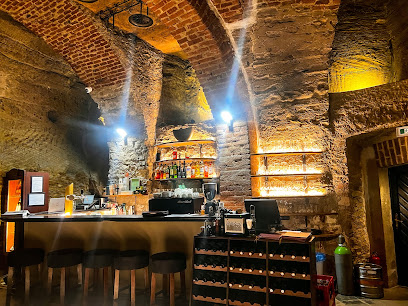
hOST Restaurant
Discover hOST Restaurant: A Culinary Gem in Prague Offering Innovative Czech Cuisine with Modern Flair.
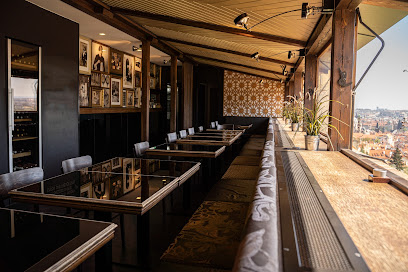
Augustine Restaurant & Garden
Discover exquisite fine dining at Augustine Restaurant & Garden in Malá Strana – where history meets culinary artistry in stunning surroundings.
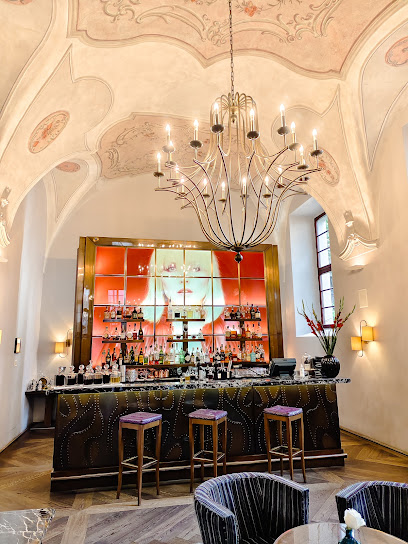
Markets, malls and hidden boutiques
Christmas shop PRAGUE
Discover the magic of the holiday season at Prague's charming Christmas shop, filled with unique decorations and festive treasures for every traveler.
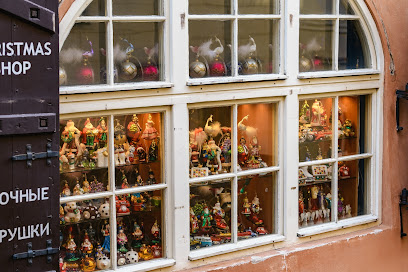
My Prague
Explore My Prague Gift Shop for authentic Czech souvenirs and unique gifts that embody the spirit of Prague's rich culture.
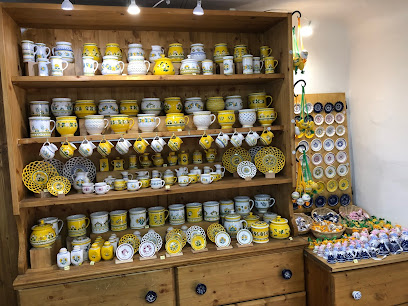
Monastery Gift Shop
Discover unique souvenirs and local crafts at the Monastery Gift Shop, nestled in the historic Strahov Monastery of Prague.
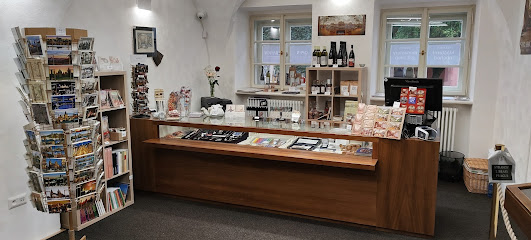
Ozdobné válečky
Discover unique Czech souvenirs at Ozdobné válečky in the heart of Malá Strana, where artistry meets culture.
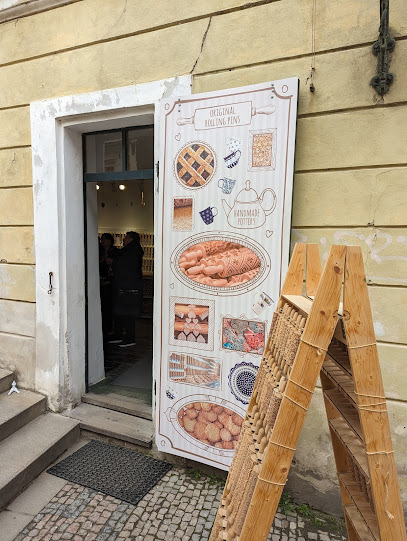
Gift Shop Nerudova
Explore Gift Shop Nerudova in Malá Strana for unique souvenirs and local crafts that embody the spirit of Prague.
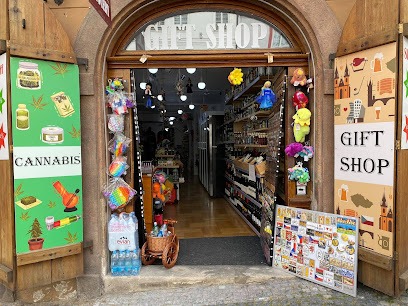
Christmas shop
Explore the enchanting Christmas Shop in Prague for unique holiday decorations and gifts that capture the spirit of the season.
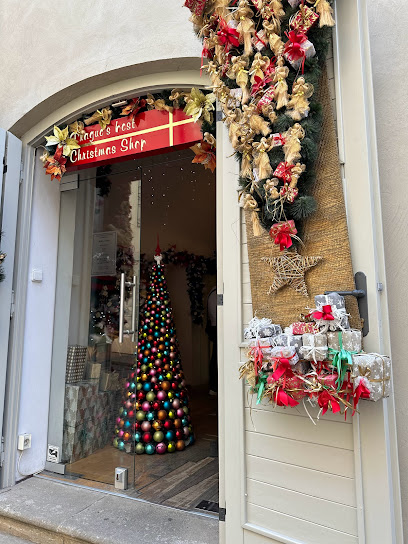
Museum Shop
Explore the Museum Shop in Prague for unique souvenirs, local crafts, and delightful mementos that capture the essence of Czech culture.
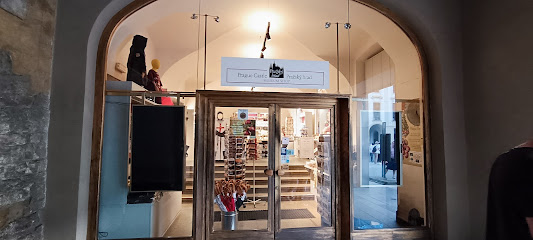
AMADEA s.r.o., Zlatá ulička 20, Pražský Hrad, Praha 1
Explore Amadea, a unique gift shop in Prague offering exquisite handcrafted woodwork and authentic Czech souvenirs.
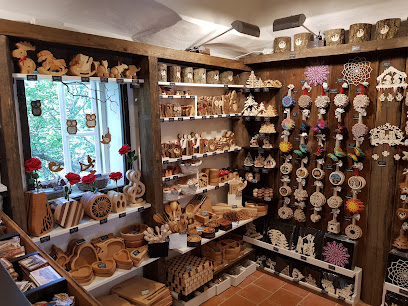
Magazín Octane
Explore Magazín Octane in Hradčany for unique souvenirs and local crafts that capture the spirit of Czech culture.
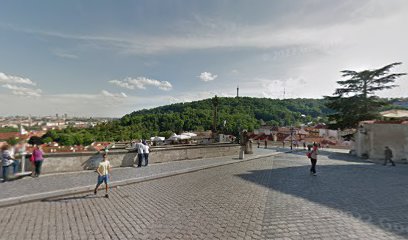
Gift Shop Czech Crystal
Explore the enchanting Gift Shop Czech Crystal in Prague, where exquisite craftsmanship meets unique Czech artistry for unforgettable souvenirs.

Essential bars & hidden hideouts
The Pub Praha 1
Discover the lively atmosphere and exceptional beer selection at The Pub Praha 1 in the heart of Prague's Old Town.
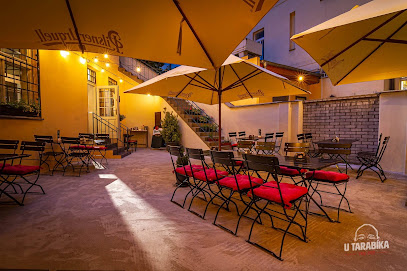
U Černého vola
Discover U Černého vola, a charming pub in Prague, offering traditional Czech cuisine and exceptional local beer in a cozy atmosphere.
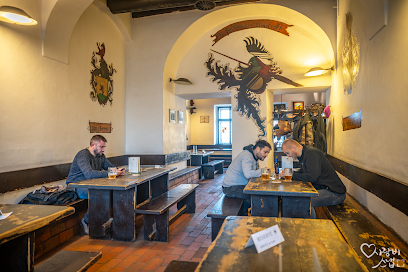
U Hrocha
Discover U Hrocha, a traditional beer hall in Malá Strana, where authentic Czech culture meets a vibrant atmosphere and local brews.
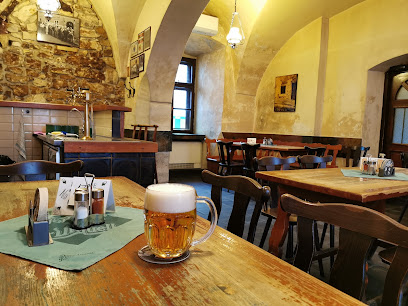
NAPA bar and gallery
Discover NAPA Bar and Gallery in Malá Strana, a vibrant cultural hub offering art, craft beers, and a lively atmosphere for an unforgettable experience.
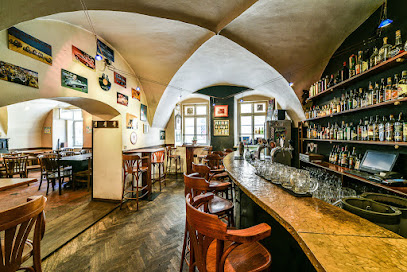
Bar Bluelight
Discover the vibrant nightlife of Prague at Bar Bluelight, where expertly crafted cocktails and a lively atmosphere await.
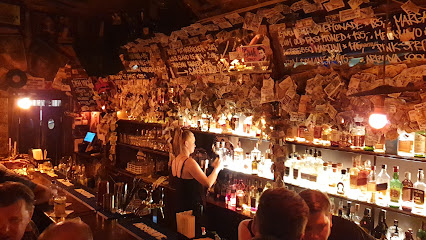
Crazy Daisy
Discover Crazy Daisy, the ultimate cocktail bar in Můstek, offering exquisite drinks, a vibrant atmosphere, and unforgettable nightlife experiences.
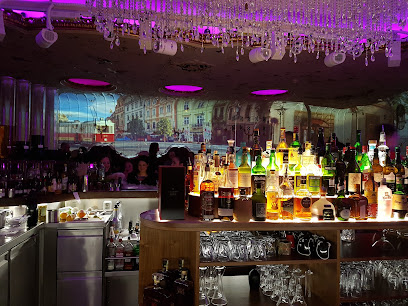
The Three Fiddles Irish Pub
Discover the vibrant spirit of Ireland at The Three Fiddles Irish Pub in Prague's charming Malá Strana district, where great food and live music await.
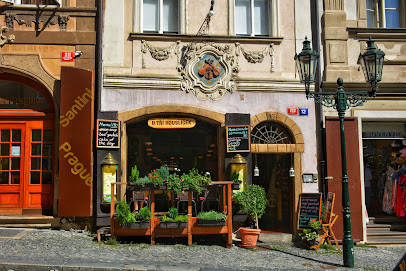
Kellyxír - alchemical pub / Alchemical Lab Pub
Discover the enchanting world of Kellyxír, a unique alchemical pub in Prague, blending creative cocktails with fine dining in a mystical atmosphere.
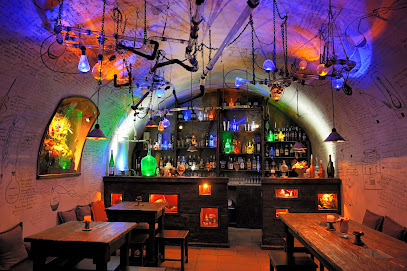
Schody Home Bar
Discover the artistic charm of Schody Home Bar in Malá Strana, where cozy ambiance meets exceptional drinks and local culture.
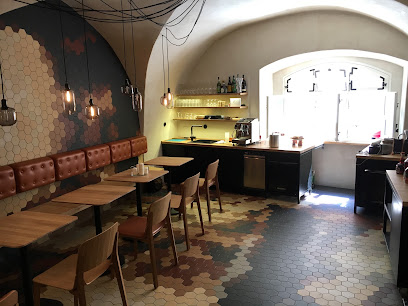
The Refectory Bar
Discover the charm of The Refectory Bar in Malá Strana, where exquisite cocktails and a cozy atmosphere await every traveler.
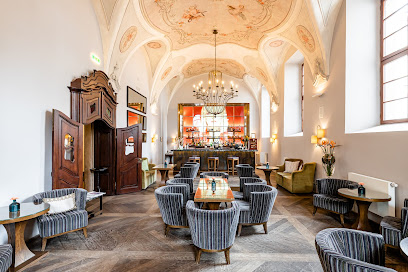
Local Phrases
-
- HelloAhoj
[ahoy] - GoodbyeNa shledanou
[nah shledanou] - YesAno
[ah-no] - NoNe
[neh] - Please/You're welcomeProsím
[pro-seem] - Thank youDěkuji
[dyeh-koo-yee] - Excuse me/SorryPromiňte
[pro-meen-teh] - How are you?Jak se máte?
[yak se ma-teh] - Fine. And you?Dobře. A vy?
[dob-zhe. ah vee] - Do you speak English?Mluvíte anglicky?
[mloo-vee-teh ahn-gleet-skee] - I don't understandNerozumím
[neh-ro-zoo-meem]
- HelloAhoj
-
- I'd like to see the menu, pleaseMohu vidět menu, prosím
[mo-hoo vee-det meh-noo, pro-seem] - I don't eat meatNejím maso
[neyeem mah-so] - Cheers!Na zdraví!
[nah zdra-vee] - I would like to pay, pleaseRád bych zaplatil, prosím
[rahd bikh zah-pla-teel, pro-seem]
- I'd like to see the menu, pleaseMohu vidět menu, prosím
-
- Help!Pomoc!
[po-mots] - Go away!Jdi pryč!
[ydee preets] - Call the Police!Zavolejte policii!
[za-vo-ley-teh po-lee-tsee] - Call a doctor!Zavolejte lékaře!
[za-vo-ley-teh leh-ka-rzhe] - I'm lostZtratil jsem se
[ztra-teel ysem se] - I'm illJsem nemocný
[ysem ne-mo-tznee]
- Help!Pomoc!
-
- I'd like to buy...Chtěl bych koupit...
[khtyel bikh koh-oo-peet] - I'm just lookingJen se dívám
[yen se dee-vam] - How much is it?Kolik to stojí?
[ko-leek to stoy-ee] - That's too expensiveTo je příliš drahé
[to ye pree-lish dra-heh] - Can you lower the price?Můžete snížit cenu?
[moo-zheh-teh sneed-zheet tseh-noo]
- I'd like to buy...Chtěl bych koupit...
-
- What time is it?Kolik je hodin?
[ko-leek ye ho-deen] - It's one o'clockJe jedna hodina
[ye ye-dna ho-dee-na] - Half past (10)Půl jedenácté
[pool yeh-ye-naht-seh] - MorningRáno
[raa-no] - AfternoonOdpoledne
[od-po-led-neh] - EveningVečer
[veh-cher] - YesterdayVčera
[ve-cheh-ra] - TodayDnes
[dnes] - TomorrowZítra
[zee-tra] - 1Jedna
[yeh-dna] - 2Dva
[dvah] - 3Tři
[tree] - 4Čtyři
[ctyr-zhee] - 5Pět
[pyet] - 6Šest
[shest] - 7Sedm
[sedm] - 8Osm
[osm] - 9Devět
[deh-vyet] - 10Deset
[deh-set]
- What time is it?Kolik je hodin?
-
- Where's a/the...?Kde je...
[kde ye] - What's the address?Jaká je adresa?
[ya-ka ye ah-dre-sa] - Can you show me (on the map)?Můžete mi to ukázat (na mapě)?
[moo-zheh-te mee toh oo-kah-zat (na ma-peh)] - When's the next (bus)?Kdy jede další (autobus)?
[kdee ye-deh dal-shee (ow-toh-boos)] - A ticket (to ....)Jedno jízdenka (do ....)
[ye-dno yeez-den-ka (do)]
- Where's a/the...?Kde je...
History of Hradcany
-
Hradčany, or the Castle District, traces its origins back to the 9th century when it served as the site of the early Prague Castle, established by Prince Bořivoj of the Přemyslid dynasty. This strategic location atop a hill overlooking the Vltava River provided a natural defense and a commanding view of the surrounding landscape, making it an ideal seat of power.
-
The 14th century heralded a period of significant development in Hradčany under the rule of Charles IV, Holy Roman Emperor. The construction of St. Vitus Cathedral began during this time, showcasing the Gothic architectural style that would come to define the area. The cathedral not only served as a religious center but also as a symbol of the growing power of the Czech kingdom.
-
The 16th and 17th centuries brought a cultural renaissance to Hradčany, with the addition of elaborate palaces and gardens. Notable structures, such as the Lobkowicz Palace and the Royal Summer Palace, were constructed during this period, reflecting the Baroque style that emphasized grandeur and artistic expression. Hradčany became a focal point for the Czech nobility and artists, further enriching its cultural tapestry.
-
During the 19th century, Hradčany continued to evolve as part of the Austro-Hungarian Empire. The area witnessed urban modernization, with new public buildings and infrastructure developments. This period also saw the rise of national movements, with Hradčany as a hub for Czech national identity and pride, culminating in various cultural and political events that shaped the region's future.
-
The aftermath of World War II brought significant changes to Hradčany, as it became a symbol of the communist regime in Czechoslovakia. The area was subject to various renovations and restorations as part of the state’s efforts to preserve its historical significance. The Velvet Revolution in 1989 marked a turning point, leading to the revitalization of Hradčany as a cultural and historical center, attracting both tourists and locals alike.
Hradcany Essentials
-
Hradcany is easily accessible from various parts of Prague. You can take tram lines 22 or 23, which will drop you off at the gates of the Prague Castle complex. Alternatively, the closest metro station is Malostranská on Line A, followed by a short walk or tram ride. Buses also connect this neighborhood to other parts of the city, notably bus line 194 from the city center.
-
Hradcany is a pedestrian-friendly area, ideal for exploring on foot. The main attractions, including Prague Castle and St. Vitus Cathedral, are within walking distance. For those preferring public transport, trams are the most convenient option. Bicycles can be rented from various locations around the city, but be cautious on the cobblestone streets. Parking is limited, so it's best to rely on public transport.
-
Hradcany is generally a safe neighborhood for tourists, but standard precautions should be taken. Avoid poorly lit areas at night and keep an eye on your belongings in crowded places. Petty crimes, such as pickpocketing, can occur near tourist hotspots. Areas surrounding major attractions like Prague Castle can be busy, so stay vigilant, especially with your valuables.
-
In case of emergency, dial 112 for police, fire, or medical assistance in Czechia. The nearest hospital is Motol University Hospital, located a short taxi ride away. It's advisable to have travel insurance that covers medical emergencies. Pharmacies (lekárna) are available throughout Hradcany for minor health issues and over-the-counter medications.
-
Fashion: Do dress appropriately for visits to religious sites, covering shoulders and knees. Don't wear overly casual clothing, such as beachwear. Religion: Do respect local customs, including silence in places of worship. Don't take photos where prohibited. Public Transport: Do validate your ticket before boarding. Don't talk loudly or eat on trams or buses. Greetings: Do greet with a firm handshake and maintain eye contact. Don't use informal language unless invited. Eating & Drinking: Do try local Czech cuisine, and accept invitations to share meals. Don't waste food, as it is considered disrespectful.
-
To experience Hradcany like a local, consider visiting the gardens of Prague Castle early in the morning to enjoy the peaceful atmosphere before the crowds arrive. Explore the less touristy streets for authentic cafés and shops. Try to engage with local residents, who often share insights about the area's history and culture. Don't miss the hidden gems, like the quaint alleyways leading to the Lesser Town and the beautiful views from the castle steps.
Nearby Cities to Hradcany
-
Things To Do in Kutná Hora
-
Things To Do in Plzeň
-
Things To Do in Hradec Králové
-
Things To Do in Karlovy Vary
-
Things To Do in Dresden
-
Things To Do in České Budějovice
-
Things To Do in Český Krumlov
-
Things To Do in Brno
-
Things To Do in Linz
-
Things To Do in Leipzig
-
Things To Do in Olomouc
-
Things To Do in Wroclaw
-
Things To Do in Nuremberg
-
Things To Do in Vienna
-
Things To Do in Erfurt



